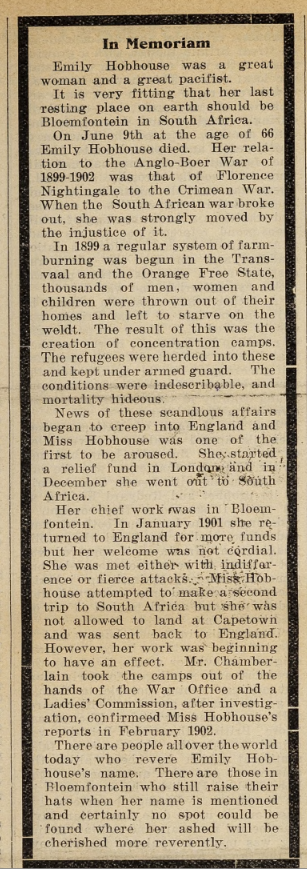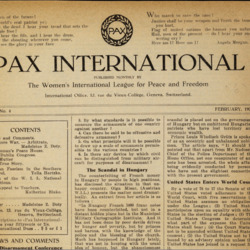Emily Hobhouse was a great woman and a great pacifist.
It is very fitting that her last resting place on earth should be Bloemfontein in South Africa.
On June 9th at the age of 66 Emily Hobhouse died. Her relation to the Anglo-Boer War of 1899-1902 was that of Florence Nightingale to the Crimean War. When the South African war broke out, she was strongly moved by the injustice of it.
In 1899 a regular system of farm-burning was begun in the Transvaal and the Orange Free State, thousands of men, women and children were thrown out of their homes and left to starve on the [veldt]. The result of this was the creation of concentration camps. The refugees were herded into these and kept under armed guard. The conditions were indescribable, and mortality hideous.
News of these [scandalous] affairs began to creep into England and Miss Hobhouse was one of the first to be aroused. She started a relief fund in London and in December she went out to South Africa.
Her chief work was in Bloemfontein. In January 1901 she returned to England for more funds but her welcome was not cordial. She was met either with indifference or fierce attacks. Miss Hobhouse attempted to make a second trip to South Africa but she was not allowed to land at Capetown and was sent back to England. However, her work was beginning to have an effect. Mr. Chamberlain took the camps out of the hands of the War Office and a Ladies' Commission, after investigation, [confirmed] Miss Hobhouse's reports in February 1902.
There are people all over the world today who revere Emily Hobhouse's name. There are those in Bloemfontein who still raise their hats when her name is mentioned and certainly no spot could be found where her [ashes] will be cherished more reverently.









Comments